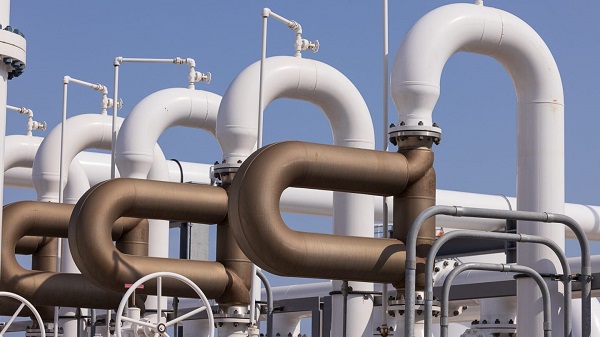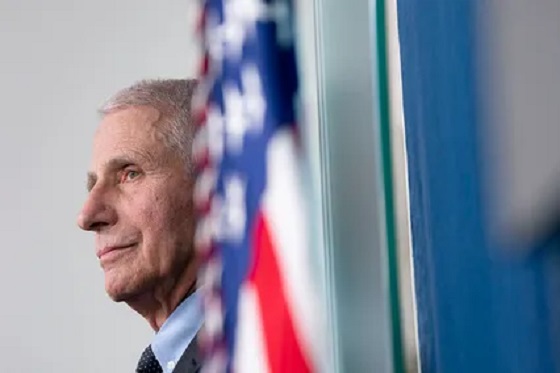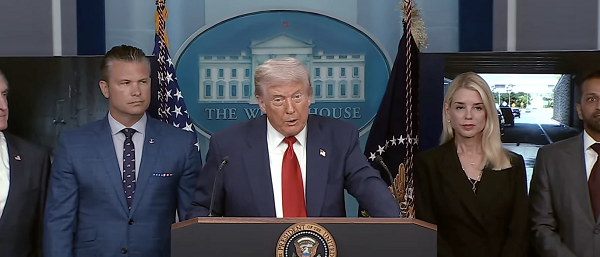Business
Canadians are fed up with grocers maple‑washing their food

This article supplied by Troy Media.
Patriotic packaging on foreign food isn’t clever marketing—it’s maple‑washing, and it’s eroding trust
Canadian grocery retailers are misleading shoppers about where their food really comes from. Behind the patriotic packaging lies a growing problem: “maple‑washing”—using Canadian symbols to suggest products are homegrown when they’re not. It’s eroding consumer trust and must end.
That’s why more Canadians are paying closer attention to what labels actually mean. Awareness around origin labelling has grown as people learn the difference between “Product of Canada,” “Made in Canada,” and “Prepared in Canada.” The Food and Drugs Act requires labels to be truthful and not misleading. A “Product of Canada” must contain at least 98 per cent Canadian ingredients and processing. “Made in Canada” applies when the last substantial transformation happened here, while “Prepared in Canada” covers processing, packaging or handling in Canada regardless of ingredient source.
The differences may seem technical, but they matter. A frozen lasagna labelled “Prepared in Canada,” for example, could be made with imported pasta, sauce and meat—packaged here but not truly Canadian. These rules give consumers the clarity they need to make informed choices.
Armed with this clarity, many Canadians have become more selective about what they buy. That vigilance has emerged alongside a surge in consumer nationalism, spurred partly by geopolitical tensions and anti‑American sentiment. Even with U.S. giants like Walmart, Costco and Amazon dominating Canadian retail, many shoppers are deliberately avoiding American food products. The impact has been significant: NielsenIQ reports an 8.5 per cent drop in sales of American food products in Canada over just a few months. In an industry where sales usually shift by fractions of a per cent, such a drop is extraordinary. It shows how quickly Canadians are voting with their wallets.
That kind of shift, rare outside of crises, caught many grocers off guard. The sudden change left supply chains long dependent on U.S. products under pressure, and store‑level labelling grew inconsistent. Early missteps—like maple leaves displayed beside imported goods—were excused as logistical oversights. But six months later, those excuses no longer hold. Persisting with misleading displays and false origin claims has crossed the line into misrepresentation. Instances of oranges or almonds labelled as Canadian, with prices quietly adjusted after complaints, show the problem is systemic, not accidental.
Regulators have stepped in. The Canadian Food Inspection Agency (CFIA) received 97 complaints about origin claims between November 2024 and mid‑July 2025. It investigated 91 cases and confirmed 29 violations. That level of scrutiny signals a growing intolerance for deceptive marketing.
The message to retailers is clear: this is not business as usual. Canadians have shown remarkable solidarity in supporting homegrown products during a time of economic strain and food insecurity. The least retailers can do is honour that trust by maintaining strict standards in labelling and merchandising. This is not about nationalism. It is about honesty. In today’s market, misleading customers is not only unethical but bad economics.
Consumers who suspect false origin claims should report them to the CFIA or to a retailer’s customer service. The CFIA generally investigates within 30 days. But the burden should not rest on shoppers to police grocery aisles. The responsibility lies with retailers to meet the moment with the same accountability they now expect from suppliers, regulators and consumers.
After months of consumer vigilance, it is up to grocers to end maple‑washing once and for all.
Dr. Sylvain Charlebois is a Canadian professor and researcher in food distribution and policy. He is senior director of the Agri-Food Analytics Lab at Dalhousie University and co-host of The Food Professor Podcast. He is frequently cited in the media for his insights on food prices, agricultural trends, and the global food supply chain.
Troy Media empowers Canadian community news outlets by providing independent, insightful analysis and commentary. Our mission is to support local media in helping Canadians stay informed and engaged by delivering reliable content that strengthens community connections and deepens understanding across the country.
Business
Looming Air Canada strike highlights need for more competition in the air
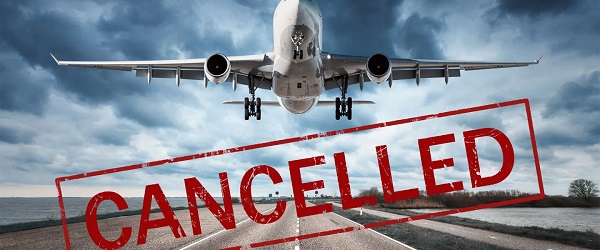
From the Fraser Institute
By Alex Whalen and Jake Fuss
Air travelers in Canada are facing a major disruption as Air Canada’s flight attendants threaten strike action. Air Canada says the strike could affect 130,000 passengers per day from coast to coast.
Currently, two airlines control between roughly half and three quarters of all air travel at Canada’s major airports. When either Air Canada or WestJet face a disruption, a large share of Canada’s overall air traffic is affected. In recent polls, a majority of Canadians have said they feel like Canada’s system of air travel is “broken”. Passengers experiencing hardship should cheer for more competition in Canada’s airline industry.
Increased competition has multiple benefits. When one airline inevitably faces a disruption, passengers would have more options to book with other carriers. Competition also tends to lead to lower prices and better service across the board for the customer, as power shifts away from the supplier and toward the consumer.
Unfortunately, Canada’s skies are largely sealed off from competition.
Due to restrictive federal rules known as “cabotage”, foreign airlines may fly to Canadian airports, but they cannot operate routes exclusively within Canada. For example, a foreign airline such as Delta can fly from New York to Toronto, but cannot then fly from Toronto to Montreal. This policy limits choice and competition within Canada.
In contrast, the European Union removed cabotage restrictions for member-states in the 1990s. The result? More competition (including from new low-cost carriers such as Ryanair), a 34 per cent decline in ticket prices (adjusted for inflation), more cross-border routes, and greater flight frequencies. The entry of new low-cost carriers alone helped lower airfares by 20 per cent.
But new entrants into the industry, including low-cost carriers, face significant barriers to entry in Canada, with foreign ownership restrictions compounding Canada’s competition problem. Currently, the Canada Transportation Act caps foreign ownership of Canadian airlines at 49 percent, and no individual foreign investor can own more than 25 percent of the voting shares.
Starting a new airline is obviously a big undertaking, in part because of the large amounts of capital required to acquire a fleet of airplanes. These rules limit the ability of new entrants to raise the necessary investment capital to compete in the Canadian market.
Loosening these restrictions was recently recommended by Canada’s Competition Bureau, which had been tasked with studying the dismal state of competition in Canada’s airline sector. Earlier this year, we authored a study published by the Fraser Institute which reviewed international best practices in airline policy. Based on this review, we recommended Canada remove foreign ownership restrictions, among numerous other recommendations where Canada is offside with peer countries, including the need for lower taxes and fees, changes to Canada’s airport ownership structure, and a more competitive regulatory burden.
The looming Air Canada strike is just the latest in a long list of regular disruptions faced by Canadian air travelers. While such disruptions may never be fully eliminated, government policy is making the situation worse than it needs to be. Cabotage and foreign ownership restrictions should be removed to provide consumers greater choice when it comes to air travel.
Alberta
Will Carney’s Dazed & Confused Trade War Performance Target Canada’s Oil & Gas Industry?

From Energy Now
By Jim Warren
At first, the elbows up chicken dancers at Carney election rallies seemed harmless enough.
Post-election, they’ve become a menace.
The problem is being a patriotic chicken dancer does not mean one is also well informed about the fundamentals of economics and international trade. This partly explains why yesterday’s chicken dancers have become today’s cheerleaders for Ontario Premier Doug Ford and his plans for combating the Trump tariffs.
Ford supports a “get tough on the Americans” Team Canada response to our tariff problems. He imagines a pan-Canadian flourishing of hard-nosed patriotism whereby we punish the US with counter-tariffs and export taxes.
Ford wants us to pull together as flag waving Canadians and kick American butt, no matter how much it hurts us. Of particular concern to people from Alberta and Saskatchewan is eastern Canada’s fixation on applying export taxes on oil potash and uranium.
Ford’s approach amounts to a willingness to endure self-inflicted wounds to show the Americans we mean business. Come on patriots, circle the wagons and shoot in. Let the Americans know if they don’t eliminate those dastardly tariffs we will punch ourselves in the face some more. That’ll show ‘em.
Take potash for instance, food guru Sylvain Charlebois among other Eastern pundits has alerted us to the problems Canada could create for US agriculture by imposing punitive export taxes on Saskatchewan potash. That would indeed present a serious problem for American farmers, but not for long.
Prior to Putin’s invasion of Ukraine, Russia and its ally Belarus vied with Saskatchewan for the title “world’s largest potash producer”. Saskatchewan’s potash industry has done relatively well following the imposition of international sanctions on Russia and Belarus over their unprovoked aggression against Ukraine. (Belarus allowed Putin to assemble invasion forces on its territory.)
But guess what? Just as soon as we put an export tax on potash, Trump can be expected to waive the sanctions on Russia and Belarus and ensure US farmers aren’t starved for fertilizer. Conceivably it could take years for Saskatchewan producers to win back their American customers. Export taxes are a threat to the well-being of your own exporters—not merely a way to irritate your opponent in a trade war.
It is less likely, but possible, a similar fate would await Western Canada’s petroleum sector if export taxes were applied to the oil we sell to the U.S. It seems eminently plausible that if we taxed oil exports Trump would be tempted to seek out alternative sources in the international marketplace. Would he entertain removing sanctions on Russian oil for example? Admittedly, it would be a difficult problem for Americans to deal with.
But are Ford, his Team Canada cheerleaders and the federal government crazy enough to put oil revenues at risk? Crude oil remains the single most valuable commodity we export. Why would sane people put those revenues at risk? Unfortunately, after 10 years of Liberal government we have learned that when environmental zealots are in office they will happily sacrifice economic growth, jobs and prosperity on behalf of combating climate change.
It is easy for Doug Ford and the “patriots” to chicken dance to their hearts’ content if the cost of getting tough on the US is borne by oil, gas, potash and uranium producers from Saskatchewan and Alberta.
Tariff problems affecting the prairies took a turn for the worse on August 11 when China placed a 75% tariff on Canadian canola. Canada exports about $5 billion worth of canola in seed form, oil and meal to China. Saskatchewan and Alberta account for over three quarters of those exports.
Provincial politicians from the West have called on the prime minister to fast track discussions with China to resolve the dispute. China claims the new tariff is a reaction to Canada dumping canola produced by subsidized farmers. That’s a total fiction. The real reason is retaliation for the 100% tariff the Trudeau Liberals applied to Chinese EVs.
The Government of Canada, Canadian automakers and EV battery manufacturers have invested billions in developing the capacity to manufacture batteries (often unsuccessfully) and retooling assembly lines at auto plants.
Chinese government subsidies have been in large measure responsible for the incredible advances in Chinese EV technology. Chinese EVs are more technologically sophisticated, more energy efficient and far less expensive than EVs produced in Europe and North America—little wonder car makers in those regions have demanded their governments impose stiff tariffs on Chinese EV imports.
It’s clear that the Team Canada approach to fighting tariffs has run into a couple of significant snags. Teams Ontario and Quebec would be pleased to see export taxes applied to Western oil, gas, potash and uranium. The West will never agree to this.
At the same time prairie farmers would like to see the tariffs on Chinese EVs reduced or eliminated. Ontario and its thousands of auto workers can’t let that happen.
We can therefore expect to see a collapse in pan-Canadian cooperation.
It doesn’t require deep insight to predict who the winners and losers will eventually be. The Liberal government showed its hand several weeks ago when it passed legislation guaranteeing supply management for dairy and poultry farmers would never become a bargaining chip in trade negotiations. Supply management is a sacred institution in Quebec. La Belle Province has by far the most dairy farmers per capita of any province. Protecting those farmers is one of Quebec’s perennial demands.
As it happens, one of Donald Trump’s principal irritants when it comes to trading with Canada is the supply management system. He has identified it as one of the reasons he’s getting tough on trade with Canada.
When it comes to a prairies versus Ontario and/or Quebec quarrel, Westerners only rarely win.
It’s a Liberal tradition, keep the voters in Ontario and Quebec as happy as possible. So what if the West gets annoyed—they have no power in parliament. That’s why Liberal elections strategy is based on the maxim “Screw the West, we’ll take the rest.”
-

 Business2 days ago
Business2 days agoESG: The Use of Non-Financial Metrics by the Investment Industry is a Lawsuit Waiting to Happen
-
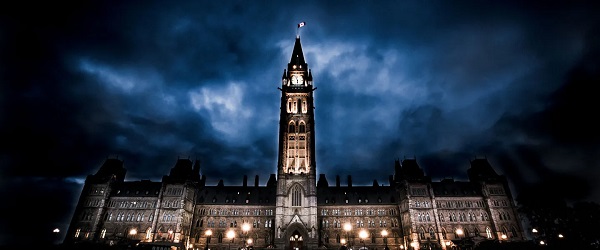
 Business2 days ago
Business2 days agoClosing the economic and fiscal books on the Trudeau era
-

 Business2 days ago
Business2 days agoCarney dropped the ball on tariffs
-

 Opinion2 days ago
Opinion2 days agoLouisiana AG alleges popular gaming site Roblox is overrun with ‘child predators’ in lawsuit
-

 Alberta2 days ago
Alberta2 days agoImmigration crisis demands immediate action! Alberta Immigration Minister Joseph Schow
-
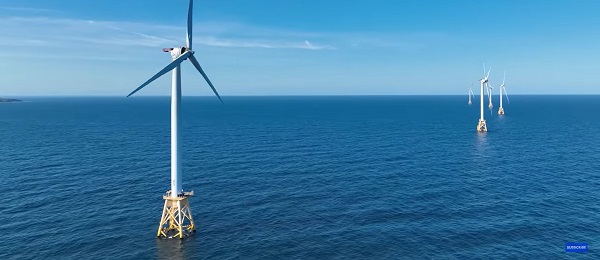
 Daily Caller2 days ago
Daily Caller2 days agoOffshore Wind’s Mask Finally Comes Off
-

 International1 day ago
International1 day agoTrump Says Putin, Zelenskyy To Meet Following Alaska Summit
-

 Daily Caller2 days ago
Daily Caller2 days agoToronto International Film Festival To Screen October 7 Doc After Backlash For Initial Ridiculous Excuse


